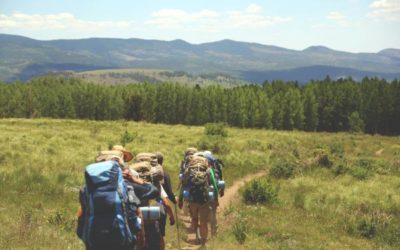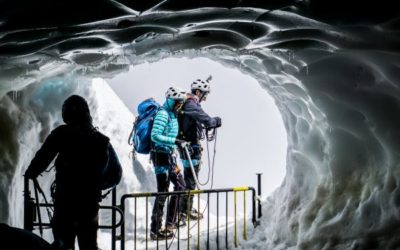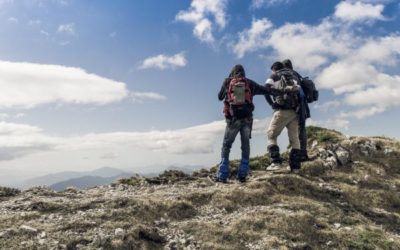Political seasons, like election years, provide much opportunity for reflection on issues that effect us in big ways. These seasons are the perfect time to take an honest look at biblical political views, which is as our next “tent stake” in my series: “The 10 Tent Stakes of Our Worldview | Lessons from the Wilderness.” The conclusion of this post on “politics” will propose the bold claim that wilderness guides are a living example of what good political leaders should be doing for us.
1. POLITICS IS INDISPENSABLE
It might come as a surprise to some people that outdoor adventure ministries could be a prime platform to teach people about biblical political views. Politics is indispensable. It is the part of our worldview that, from a biblical view, should promote sensible and fair governance of people in every culture and society. Politics is concerned with the relationship between people and their state. It includes questions about justice, law, our rights, and the obligations of each citizen. I’ve been doing student ministry and leadership development ministries for many years, and I cannot think of many more topics that are more relevant (especially for young people) to consider.
2. ORIGINS & FAIR QUESTIONS
The origin of the word “politics” comes from the greek word, politicos, which came from the words: politēs “citizen,” and polis “city.” I hope this post will convince many that outdoor leadership is a prime training ground to teach a biblical view of politics, and potentially shape better political leaders which our society greatly needs. Here are some fair questions we have to answer: What were the political views of Jesus? What does the Bible say about politics? And in what ways could outdoor leadership and adventure help someone become a better political leader?
3. PAUL’S ROAMIN’ ROMAN VIEW
The Apostle Paul who was very aware of this greek word, politicos, and its meaning to the persecuted church of his time. In a letter to the church in Rome, he writes:
Everyone must submit himself to the governing authorities, for there is no authority except that which God has established. The authorities that exist have been established by God. (Romans 13:1)
Paul was a Roman citizen. He roamed around the Roman Empire, and learned a thing or two about politics. He probably saw may good and bad examples of political leadership. As Paul approaches this topic from a biblical view, he teaches that God’s design for human relationships involves proper respect for authority. That is the foundation of politics.
RELATED POST: 4 Ways Time Outdoors Can Expose the Worldview of Jesus
4. NOW THERE IS AN EVEN GREATER NEED FOR GOVERNANCE (POLITICS) IN A WORLD RAVAGED BY PRIDE AND SIN
Even though God introduced the idea of authority and governance into his creation before the Fall, the Bible does emphasize that when sin entered the world, there arose a special need for governance. His design is that those people who have power should use it to inspire, empower, and protect those whom they govern. Yet we see abuses of this all the time, don’t we? The famous quote written by John Emerich Edward Dalberg Acton (1834–1902) in a letter written to the Bishop of England, acknowledges this inadequacy of worldly politics:
Power corrupts, absolute power corrupts absolutely.
5. THE MAKING OF POLITICAL LEADERS IN THE WILDERNESS
In an outdoor leadership setting, participants get exposed to the good side of governance. I have seen this especially come out when a group of novices sets out on an adventure with highly experienced and effective guides. When you are doing something new, you feel very vulnerable. There are skills you have to learn, there are new levels of resilience you must work through to succeed in reaching your goals, and there are things you just don’t know yet about survival, etc. Without an experienced guide in wilderness, you are probably going to suffer a lot or at worse kick the bucket.
RELATED POST: The 3 E’s of Rapid Decision-Making Skills in Outdoor Leadership
Guides are a living example in this scenario of what good political leaders should be doing for us. They should be skilled in decision-making and facilitation. They should see themselves as humble servants charged with the task of bringing dignified growth and success to those who are vulnerable novices. And good political leaders should be confident and wise enough to make hard calls and do what is best for the group, no matter how uncomfortable their decision might be. Guides in the wilderness don’t take opinion polls. They don’t hold focus groups to find out what people “want them to do.” There is no time for that in the wilderness. Guides have to be proven leaders who know how to take novices to the next level by showing them the skills they need. They draw out their best through appropriate challenges. They manage the level of risk in the adventure so that every person learns how to safely and effectively go places that they never thought possible. That is the kind of politics and governance we find in the Bible.
Stay tuned to Part 2 in this series, 5 WAYS WILDERNESS LEADERSHIP TEACHES US BIBLICAL POLITICAL VIEWS
TAKE ACTION NOW
- What qualities do you most respect in political leader (i.e. a mayor, governor, president?)
- Maybe you have been a successful guide for a long time. Could God be calling you to some sort of political involvement or leadership in your community? You have learned so much about biblical politics in the wilderness through your experiences, how might you use that deep well of knowledge and experience God has given you to govern or guide the people in your community?
- Think about a recent outdoor adventure and write down the qualities you respect most in the person leading that adventure. Why was their leadership so effective? What lessons about governance can we learn from their style, their attention to detail, their knowledge, their focus on the goal, etc?
- Think about 2-3 young people in your life with talent and leadership character to become a political leader some day. How might you encourage them and increase their potential in leadership? How might you use an organized outdoor leadership camp or adventure to teach them a biblical view of politics and governance through the natural unfolding experiences that come in the wilderness?




